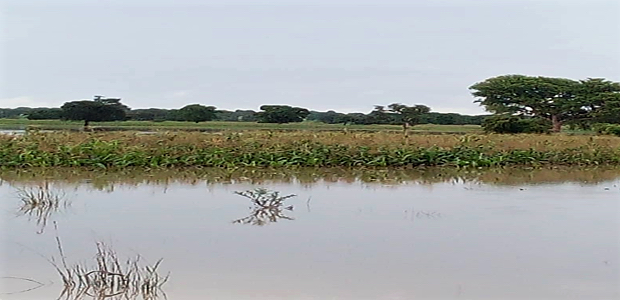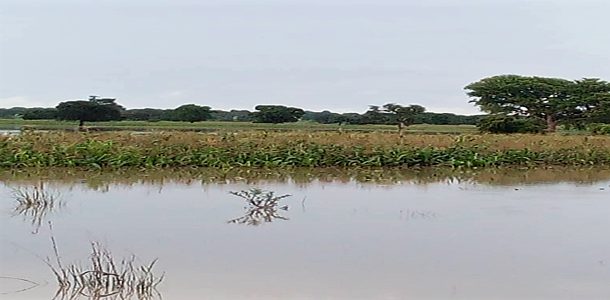The annual scheduled release of water from the Bagre Dam on the White Volta in the Northern parts of Ghana results in significant downstream damage to farmlands and property with attendant public health issues. For the past two decades, such water releases have resulted in livelihood losses among affected communities. This aim of this study is to assess the impact of this perennial flooding on microbiological contamination of water sources and field vegetables using laboratory sample testing of pre and postdam releaseand diarrhoeal disease patterns and adaptive behaviors in affected communities in the Upper East Region of Ghana, which happens to be the entry point of the White Volta. The study hopes to generate evidence that could inform policy (e.g. quantifying the potential benefits of constructing a ‘holding’ dam to retain water releases within Ghana), identify adaptive behaviors could serve as improved resilience strategies in affected communities and make recommendations on water safety management to improve public health outcomes.

Team Members
Mawuli Dzodzomenyo. – (University of Ghana)
Moses Asamoah. – (University of Ghana)
Duah Dwomoh. – (University of Ghana)
Chengxin Li. – (University of Southampton)
Sam Codjoe. – (University of Ghana)
Gertrude Owusu Domfeh. – (University of Ghana)
Joy Obando. – (Kenyatta University)
Jim Wright. – (University of Southampton)
Co-I Mentors
Sam Codjoe. – (University of Ghana)
Joy Obando. – (Kenyatta University)
Jim Wright. – (University of Southampton)

